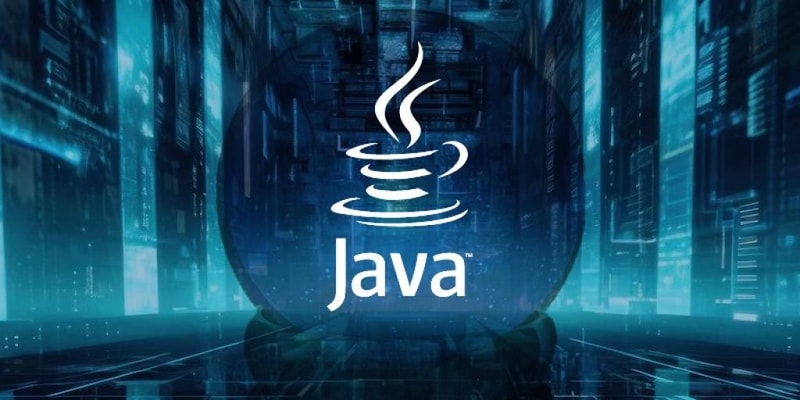30 Questions
Why is it recommended to make instance variables private in Java?
To prevent other classes from accessing the instance variables directly
What is the purpose of using a setter method in Java?
To validate incoming data
In Java, what is the purpose of data shadowing?
To reduce confusion by having variables with the same name in different scopes
In Java, what happens when the 'throw' keyword is used with an Exception Object?
The program stops execution and tries to find a fix
In Java, what is the main characteristic of a static method?
It has access to class variables.
How does Java protect itself from bad data when setting instance variables?
By throwing an exception if the passed value is not valid
What does the 'this' keyword refer to in Java?
It is used to refer to instance variables and methods in an object
When calling a static method in Java, which of the following is observed?
Using the class name to access the method.
What is the main drawback of not checking the data passed when setting instance variables in Java?
It can lead to logical errors in the program
What does the term 'DATA SHADOWING' refer to in Java?
Collision of variable names where the local variable takes precedence
What does the keyword 'static' imply when used in Java?
Only one instance can exist.
How does making instance variables private contribute to better code quality in Java?
It improves data encapsulation and security
Which term is commonly used in Java to refer to getters and setters?
Mutators and Accessors
What is the purpose of 'Method 0' as described in the text?
Comparison and branching operations.
What is the significance of creating public methods to handle instance variable values in Java classes?
It provides controlled access to instance variable values
What is the main purpose of a getter method in Java?
To retrieve the value of a variable
Which statement about accessing static methods in Java is false?
They require objects to be created first.
What is the primary benefit of using static methods in Java?
No need to create objects to use them.
What is the main difference between a static variable and an instance variable?
Static variables have the same value across all instances, while each instance has its own value for an instance variable
In a bank application with Account objects, why would the account number be an instance variable and the interest rate be a static variable?
Account numbers need to be unique for each account, while all accounts should share the same interest rate
What does it mean when we say that a static variable is never part of an object?
Static variables are not stored in the heap memory with objects
How many 'interestRate' variables would exist if there were 100 Account objects instantiated in a bank application?
1
If we instantiate 5 Person objects from the 'Person' class, how many 'name' instance variables will be created?
5
Where does the scope of an instance variable lie?
Class level
What is the primary goal of abstraction in coding?
To reduce code complexity by simplifying the model
In Pig Latin, what happens to the first consonant (or consonant cluster) of an English word?
It is moved to the end of the word
What does Encapsulation primarily aim to protect?
Instance variables from being accessed by other classes directly
What does Encapsulation prevent other programmers from doing?
Changing our object's data through unauthorized methods
What concept is closely related to the idea of Information Hiding in OOP?
Encapsulation
What is the main benefit of Encapsulation according to the text?
Preventing unauthorized access or modification of object data
Study Notes
Encapsulation and Access Modifiers in Java
- In Java, it is recommended to make instance variables private to protect them from direct access and modification from outside the class.
Setter Methods in Java
- The purpose of a setter method is to control how instance variables are set, ensuring data integrity and validity.
Data Shadowing in Java
- Data shadowing occurs when a subclass provides a specific implementation for a method that is already defined in its superclass, hiding the superclass method.
Exception Handling in Java
- When the 'throw' keyword is used with an Exception Object, it is propagated up the call stack until it is caught and handled by a catch block.
Static Methods in Java
- A static method is characterized by being able to be called without creating an instance of the class, and it belongs to the class rather than an instance of the class.
Protection from Bad Data in Java
- Java protects itself from bad data when setting instance variables by using setter methods, which can validate and control the input data.
'this' Keyword in Java
- The 'this' keyword refers to the current object of the class, used to distinguish instance variables from method parameters.
Static Methods and Instances in Java
- When calling a static method in Java, it is observed that the method belongs to the class, not an instance of the class.
Consequences of Not Checking Data in Java
- The main drawback of not checking the data passed when setting instance variables is that it can lead to data corruption and unexpected behavior.
Data Shadowing and Access Modifiers in Java
- Data shadowing refers to the concept of a subclass providing a specific implementation for a method that is already defined in its superclass, hiding the superclass method.
Static Keyword in Java
- The 'static' keyword implies that a method or variable belongs to the class, not an instance of the class.
Code Quality and Private Instance Variables in Java
- Making instance variables private contributes to better code quality by encapsulating data and controlling access to it.
Getters and Setters in Java
- Getters and setters are commonly referred to as accessors.
Public Methods for Instance Variables in Java
- Public methods are used to handle instance variable values, providing controlled access to the data.
Purpose of Getter Methods in Java
- The main purpose of a getter method is to allow controlled access to instance variables, providing a way to retrieve the value of the variable.
Static Methods and Instances in Java
- False statement: Static methods can access instance variables.
Benefits of Static Methods in Java
- The primary benefit of using static methods is that they can be called without creating an instance of the class.
Static and Instance Variables in Java
- The main difference between a static variable and an instance variable is that a static variable belongs to the class, while an instance variable belongs to each instance of the class.
Instance and Static Variables in a Bank Application in Java
- In a bank application, the account number would be an instance variable (unique for each account), and the interest rate would be a static variable (common to all accounts).
Static Variables and Objects in Java
- When we say that a static variable is never part of an object, it means that the variable belongs to the class, not to any instance of the class.
Static Variables and Multiple Objects in Java
- If there were 100 Account objects instantiated in a bank application, there would be only one 'interestRate' variable shared among all objects.
Instance Variables and Multiple Objects in Java
- If we instantiate 5 Person objects from the 'Person' class, there would be 5 separate 'name' instance variables, one for each object.
Scope of Instance Variables in Java
- The scope of an instance variable lies within the instance of the class.
Abstraction in Coding
- The primary goal of abstraction is to hide complexity and show only essential features.
Pig Latin
- In Pig Latin, the first consonant (or consonant cluster) of an English word is moved to the end of the word and 'ay' is added.
Encapsulation in OOP
- Encapsulation primarily aims to protect the object's internal state from external interference and misuse.
Benefits of Encapsulation
- The main benefit of Encapsulation is that it prevents other programmers from accessing or modifying the internal state of an object directly, ensuring data integrity and control.
Learn the importance of making instance variables private in Java programming to protect the data from being modified by external classes. Explore how Java ensures data encapsulation using access modifiers like private and how to set values through public methods.
Make Your Own Quizzes and Flashcards
Convert your notes into interactive study material.




